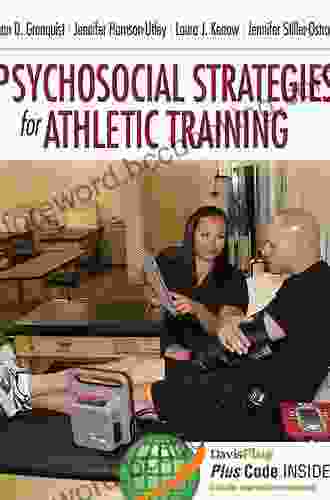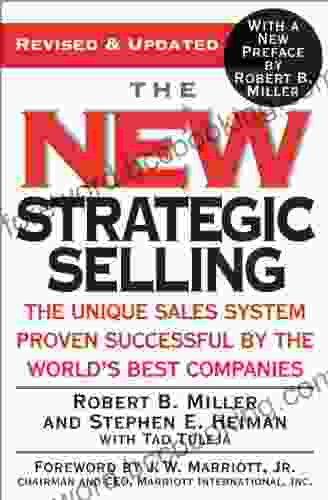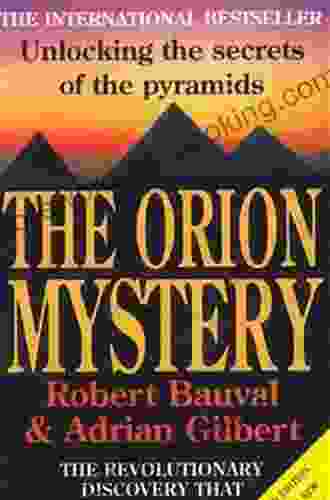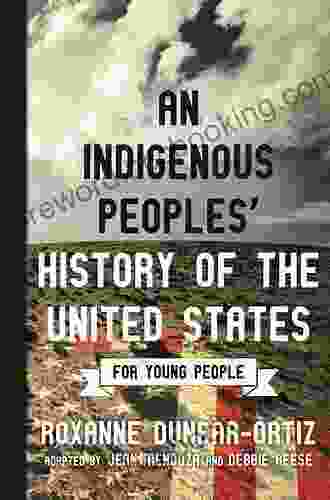Psychosocial Strategies For Athletic Training: The Ultimate Guide

: Unlocking the Power of the Mind in Sports

In the intense and competitive world of sports, athletic training often focuses primarily on physical conditioning and technical skills. However, recent research has highlighted the profound impact of psychosocial factors on athletic performance, well-being, and injury recovery. "Psychosocial Strategies for Athletic Training" is a comprehensive guidebook that empowers coaches, athletes, and healthcare professionals with cutting-edge techniques to optimize mental well-being, enhance performance, and foster resilience in this demanding field.
4.4 out of 5
| Language | : | English |
| File size | : | 22570 KB |
| Screen Reader | : | Supported |
| Print length | : | 352 pages |
| X-Ray for textbooks | : | Enabled |
Chapter 1: Understanding the Psychosocial Landscape of Sports
This opening chapter delves into the complex interplay of psychological, social, and cultural factors that shape athletic experiences. Readers gain insights into the influence of motivation, self-confidence, stress, and social support on athletic performance. By understanding these psychosocial dynamics, coaches and athletes can create a supportive and empowering training environment that fosters optimal mental health and well-being.
Chapter 2: Building Mental Toughness and Resilience
Mental toughness is a cornerstone of athletic success, enabling athletes to overcome challenges, setbacks, and adversity. Chapter 2 provides practical strategies for developing mental toughness, including mindfulness techniques, cognitive reframing, and goal-setting. By cultivating resilience, athletes learn to bounce back from setbacks, embrace challenges, and maintain a growth mindset essential for sustained success.
Chapter 3: Optimizing Motivation and Enhancing Performance
Motivation is the driving force behind athletic performance. This chapter explores various theories of motivation and offers evidence-based strategies to enhance intrinsic and extrinsic motivation in athletes. Readers will learn how to create a motivating training environment, set meaningful goals, and foster a sense of purpose that fuels athletic excellence.
Chapter 4: Managing Stress and Promoting Recovery
Stress is an inevitable part of athletic training and competition. Chapter 4 equips readers with effective stress management techniques, including relaxation techniques, stress inoculation training, and lifestyle modifications. By managing stress effectively, athletes can reduce the risk of injury, enhance recovery, and improve overall well-being.
Chapter 5: Fostering Effective Communication and Relationships
Communication is critical in athletic settings, influencing team dynamics, coach-athlete relationships, and overall training outcomes. This chapter provides practical strategies for fostering effective communication, building trust, and creating a positive and supportive team culture. By understanding the principles of interpersonal communication, coaches and athletes can harness the power of relationships to enhance performance and well-being.
Chapter 6: Supporting Athletes with Mental Health Concerns
Mental health issues can affect athletes of all levels. Chapter 6 provides an overview of common mental health concerns in sports, including anxiety, depression, and eating disFree Downloads. Readers will learn how to recognize the signs and symptoms of mental health issues, provide support, and guide athletes toward appropriate professional help. By addressing mental health concerns promptly and effectively, coaches and healthcare professionals can help athletes overcome challenges and achieve optimal well-being.
Chapter 7: Ethical Considerations and Best Practices
The ethical use of psychosocial strategies in athletic training is paramount. Chapter 7 explores ethical considerations related to privacy, confidentiality, informed consent, and the potential for misuse of psychological techniques. Readers will gain insights into best practices for ensuring ethical and responsible implementation of psychosocial strategies in athletic settings.
Chapter 8: Future Directions and Emerging Trends
The field of psychosocial strategies in athletic training is constantly evolving. Chapter 8 discusses emerging trends and future directions in research and practice. Readers will gain insights into the latest advancements in technology, such as virtual reality and artificial intelligence, and their potential impact on athletic training. By staying abreast of emerging trends, coaches and healthcare professionals can adapt and refine their practices to meet the evolving needs of athletes.
: Empowered Athletes, Resilient Teams, Thriving Communities
"Psychosocial Strategies for Athletic Training" empowers coaches, athletes, and healthcare professionals with the knowledge and skills to optimize mental well-being, enhance performance, and foster resilience in the demanding world of sports. By integrating psychosocial strategies into their training programs, athletic communities can create a culture of support, growth, and well-being that benefits athletes on and off the field.

Whether you are a seasoned coach, an aspiring athlete, or a healthcare professional dedicated to supporting athletes, "Psychosocial Strategies for Athletic Training" is an invaluable resource that will guide you on the path to athletic excellence and personal fulfillment.
4.4 out of 5
| Language | : | English |
| File size | : | 22570 KB |
| Screen Reader | : | Supported |
| Print length | : | 352 pages |
| X-Ray for textbooks | : | Enabled |
Do you want to contribute by writing guest posts on this blog?
Please contact us and send us a resume of previous articles that you have written.
 Book
Book Novel
Novel Page
Page Chapter
Chapter Text
Text Story
Story Genre
Genre Reader
Reader Library
Library Paperback
Paperback E-book
E-book Magazine
Magazine Newspaper
Newspaper Paragraph
Paragraph Sentence
Sentence Bookmark
Bookmark Shelf
Shelf Glossary
Glossary Bibliography
Bibliography Foreword
Foreword Preface
Preface Synopsis
Synopsis Annotation
Annotation Footnote
Footnote Manuscript
Manuscript Scroll
Scroll Codex
Codex Tome
Tome Bestseller
Bestseller Classics
Classics Library card
Library card Narrative
Narrative Biography
Biography Autobiography
Autobiography Memoir
Memoir Reference
Reference Encyclopedia
Encyclopedia Henry Stewart
Henry Stewart Howard Thurman
Howard Thurman Karl E Case
Karl E Case Helene Martensson
Helene Martensson Hiro Fujiwara
Hiro Fujiwara Wyomia Tyus
Wyomia Tyus Horace Freeland Judson
Horace Freeland Judson Holly Bayer Bol
Holly Bayer Bol Harry W Greene
Harry W Greene Nawar Shora
Nawar Shora Jonathan Waterman
Jonathan Waterman Helena Ortiz
Helena Ortiz Yvonne Tasker
Yvonne Tasker Henry Evans
Henry Evans Sheri Koones
Sheri Koones Meganne Forbes
Meganne Forbes Harold S Williams
Harold S Williams Harriet Brown
Harriet Brown Herb Bryce
Herb Bryce Helen Azar
Helen Azar
Light bulbAdvertise smarter! Our strategic ad space ensures maximum exposure. Reserve your spot today!

 Brody PowellEverything Kids Need to Know Before and During Their Ski Trip: The Ultimate...
Brody PowellEverything Kids Need to Know Before and During Their Ski Trip: The Ultimate... Graham BlairFollow ·15.5k
Graham BlairFollow ·15.5k Mario Vargas LlosaFollow ·7.8k
Mario Vargas LlosaFollow ·7.8k Osamu DazaiFollow ·14.4k
Osamu DazaiFollow ·14.4k Duane KellyFollow ·12.5k
Duane KellyFollow ·12.5k Geoffrey BlairFollow ·17.8k
Geoffrey BlairFollow ·17.8k Ethan MitchellFollow ·12.1k
Ethan MitchellFollow ·12.1k Adam HayesFollow ·9.9k
Adam HayesFollow ·9.9k Ezekiel CoxFollow ·6.5k
Ezekiel CoxFollow ·6.5k

 Fabian Mitchell
Fabian MitchellUnleash the Adventure: Family Fun in the Black Hills
Nestled amidst the rolling hills...
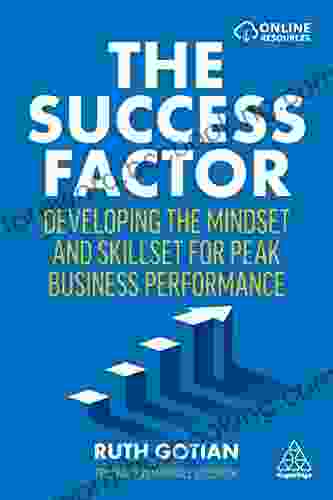
 Alfred Ross
Alfred RossUnleashing Peak Business Performance: A Journey of...
In today's rapidly evolving business...

 Fernando Bell
Fernando BellEmbrace the Prophetic Voice of Howard Zinn: A Journey...
As we navigate the complexities of our...
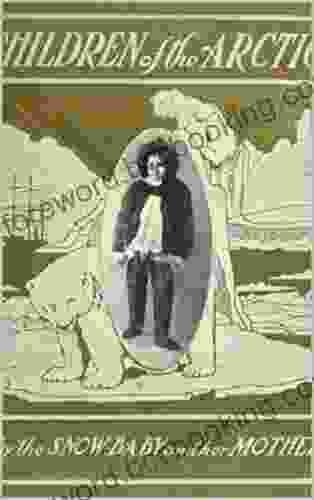
 Jonathan Franzen
Jonathan FranzenChildren of the Arctic: A Literary Expedition to the...
In the annals of...
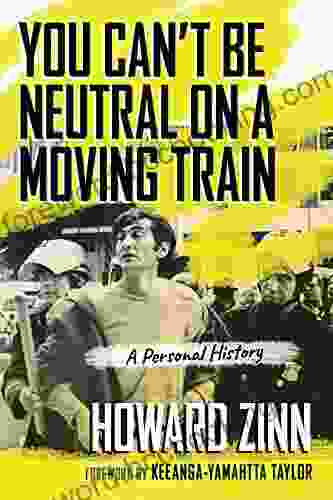
 Branson Carter
Branson CarterYou Can Be Neutral on a Moving Train: A Transformative...
Welcome, dear reader,...
4.4 out of 5
| Language | : | English |
| File size | : | 22570 KB |
| Screen Reader | : | Supported |
| Print length | : | 352 pages |
| X-Ray for textbooks | : | Enabled |


